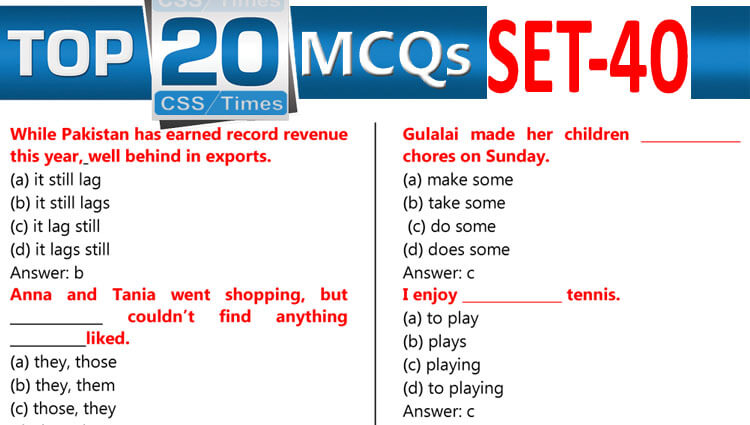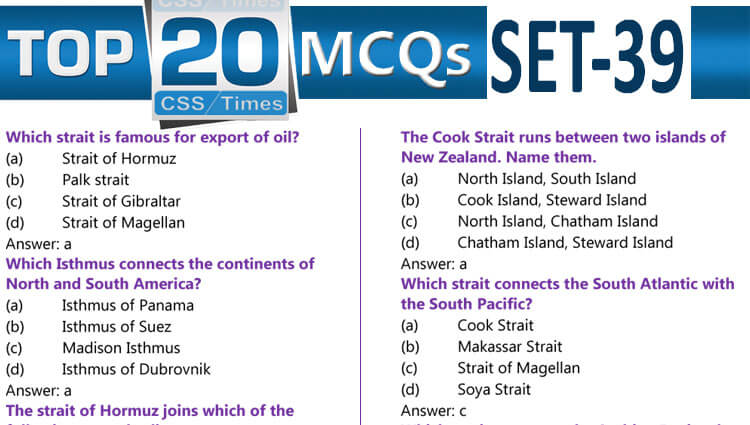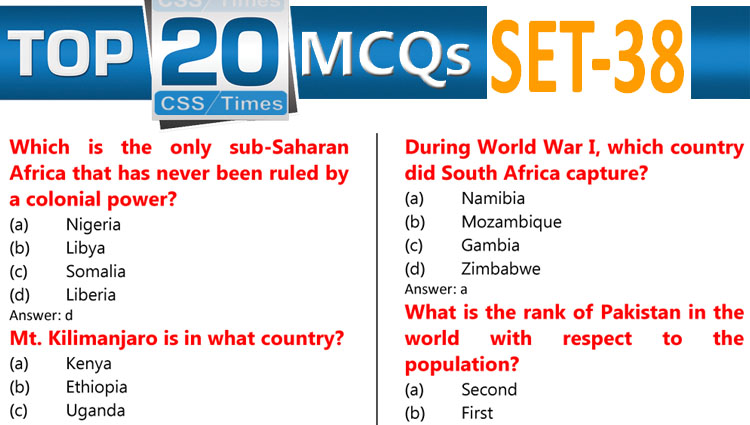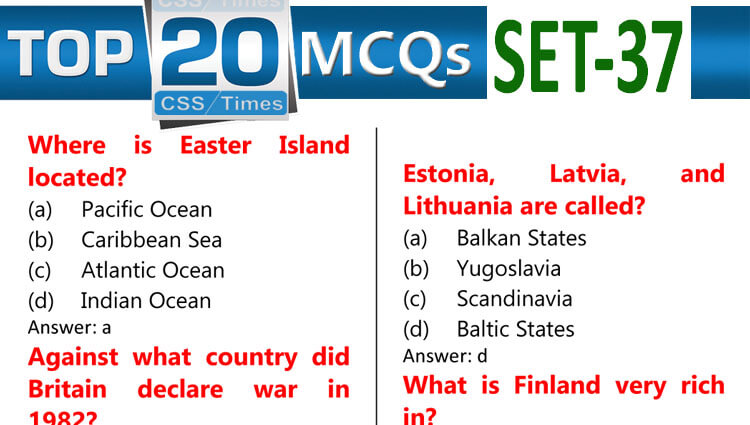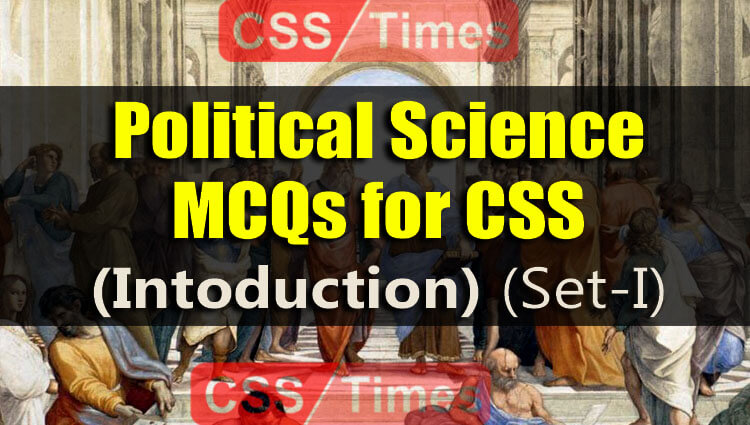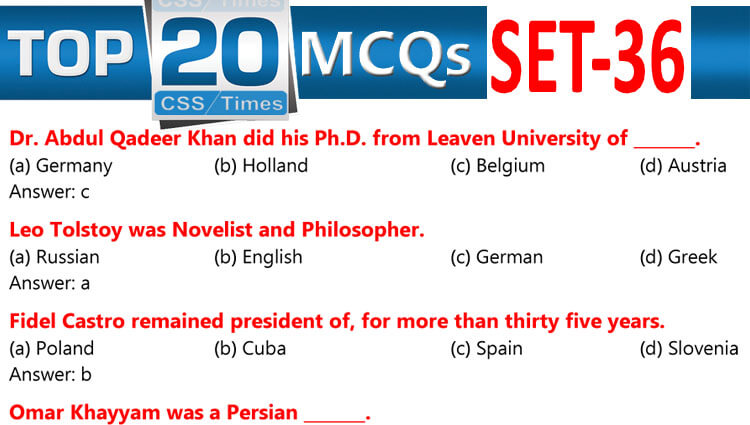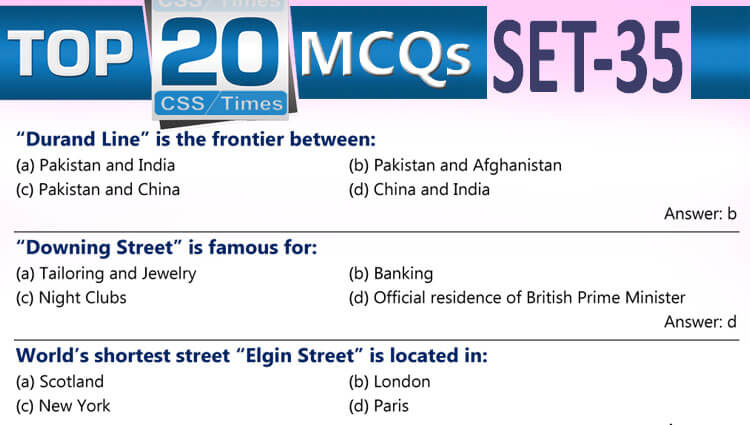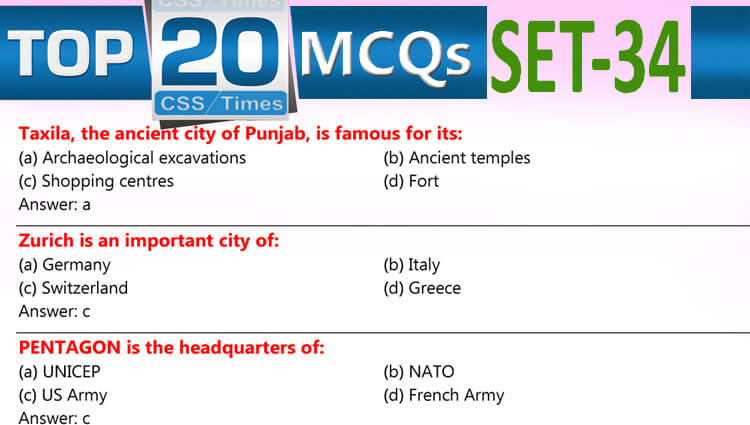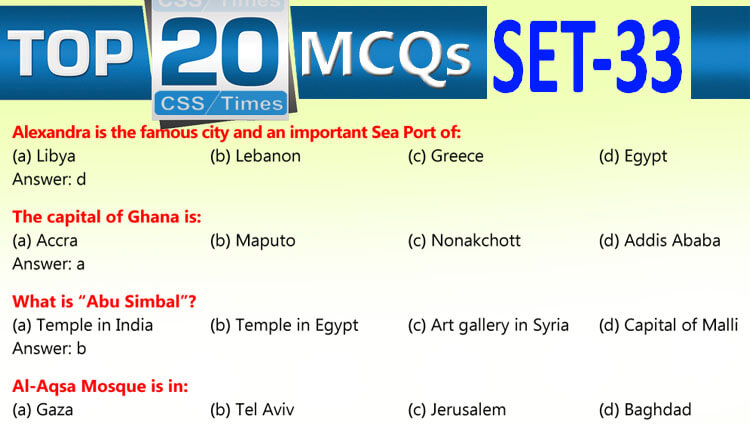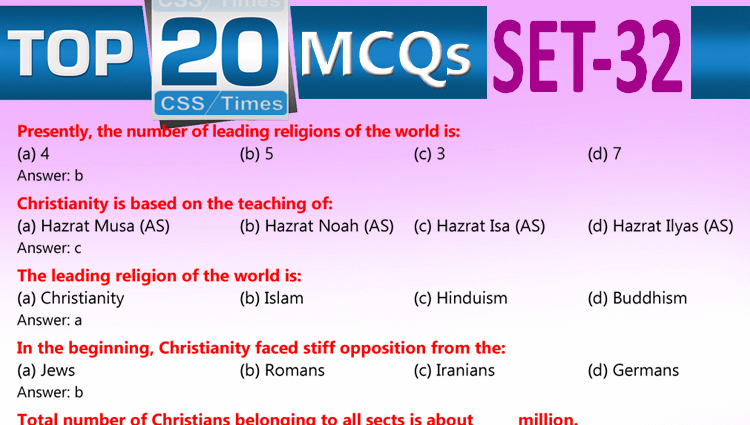Daily Top-20 MCQs (Set-40)
for CSS Screening Test, PMS, PCS, FPSC and related Exams
Today’s MCQs are all about English Grammar, these MCQs are taken from different books and Past Papers which are helpful for all type competitive exams. All these MCQs are important for coming CSS Screening Test.
